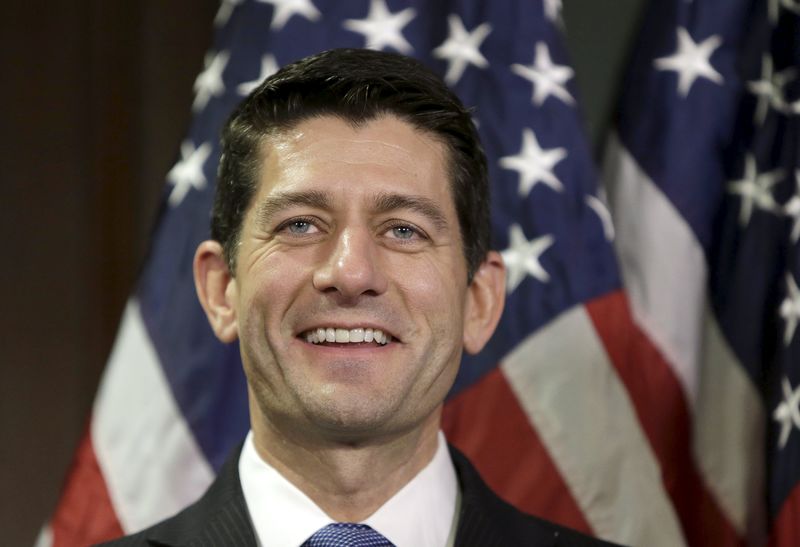By David Lawder
WASHINGTON (Reuters) - New U.S. House Speaker Paul Ryan said on Tuesday that a long-term transportation bill would undergo an open process in the House of Representatives this week, with "lots of amendments" receiving votes.
Ryan, in his first news briefing after becoming speaker last week, said the bill would authorize roads, bridges and rail transit projects for six years with three years of guaranteed funding.
If additional savings can be found elsewhere in the federal budget, he said, then the road work could be funded for a longer period. Republicans have refused to raise fuel taxes, unchanged since 1993.
After promising restive House Republicans last week that he would increase their voice in the legislative process if they elected him speaker, Ryan said the transportation bill "was a good place to start."
"That's why we're going to have an open process on the floor with lots of amendments considered by all members from both parties," Ryan said.
Representative Steve Scalise, the third-ranking House Republican, said there would be well over 100 House amendments receiving votes.
Some 280 amendments have been offered thus far on the House bill that need to be vetted for consideration, added House Transportation and Infrastructure Committee Chairman Bill Shuster. Republican lawmakers leaving a closed-door policy meeting said that among those amendments was a provision to renew the charter of the U.S. Export-Import Bank.
Ryan, who opposes EXIM renewal, did not address that issue in his news briefing.
Asked whether he plans to push for controversial Republican policy provisions in a spending bill needed to implement last week's budget deal by Dec. 11, Ryan said Congress would exercise its constitutional rights over spending issues.
"The power of the purse rests within the legislative branch and we fully expect to exercise that power," Ryan said.
Expanding on comments he made on Sunday about his reluctance to tackle comprehensive immigration reform while President Barack Obama is still in office, Ryan said the House may take action on border security and other immigration enforcement issues.

"On issues such as border enforcement, interior enforcement, where I think we all have consensus, I think that would be fine if we could advance that," Ryan said. "But I do believe that if we try to move in a comprehensive way, when the president has proven that he wants to go it alone, I don't think that works."